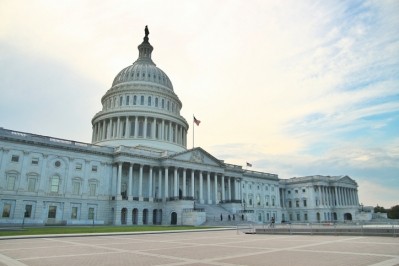From the Editor's Desk
Do current industry good times mask brewing storm?

Before the inauguration of the Dietary Supplement Health and Education Act the nascent dietary supplement industry faced true existential threats. The issues plaguing the industry today are not of the same grave nature. But they presage a time when the industry may face a much heaver and less coherent brand of legislation. And those rules could well be put into place without much in the way of collaboration with responsible players within the industry.
Before DSHEA was passed there were voices on Capitol Hill that maintained outside of a few low dosage forms of vitamins and minerals, dietary supplements were stepping over into the disease treatment category and so should be classified as drugs.
Big early win
The industry won that battle, having only to swallow the disclaimer (This product is not intended to diagnose, treat, . . . etc.) that appears by law on every properly branded dietary supplement. Dietary supplement companies have a number of regulatory provisions with which they must comply, but are not subjected to any sort of premarket approval as are drugs. And until recently these regulations came for the most part from the federal level, providing one set of rules that all companies must understand and abide by. The result was a fairly light, consistent regulatory hand and a fast-paced, thriving, innovative industry that is now approaching $60 billion in market value.
That significant victory was achieved with powerful support in the form of sponsorship by the late Sen. Orrin Hatch (R-UT) and former Sen. Tom Harkin (D-IA). DSHEA has stood, unaltered, for more than 28 years now.
Hatch’s long tenure benefited industry
In light of recent experience it seems apparent that DSHEA lasted so long with no chinks appearing its armor because of Sen. Hatch’s extremely long tenure. When he stepped down on Jan 3, 2019, he had served for 42 years, which is the sixth-longest US Senate career in history. That longevity meant that he had acquired significant power and was a force to be reckoned with.
Sen. Harkin, who while always remaining a friend to the industry was never as proactive an ally as was Sen. Hatch, left the Senate in 2015.
In the wake of their retirements, the dietary supplement industry has experienced a relative dearth of support on Capitol Hill. And without powerful friends like the two former Senators, bills which could be seen as problematical for the industry are being proposed with good prospects for passage. In the past it could be presumed that Sen. Hatch, who represented a state where dietary supplement manufacturing and marketing is the largest private sector industry, could deter most of that kind of legislation with a phone call or two.
The new threats have come thick and fast. They started on the state level, with various bills that sought to limit the sale of certain weight management dietary supplements. Then came attacks from high profile critics like Dr. Pieter Cohen, MD, of the Harvard Medical School. Most recently an FDA user fees bill had additional dietary supplement regulatory language added to it, provisions that were introduced with language alluding to an overdue need for new supplement regulations.
Shift toward ideology over results
Perhaps it's no coincidence that this began in the wake of a shift within the Republican Party away from a more pragmatical approach toward one that stressed ideological purity and a reduced willingness toward bipartisanship. In 2010, when the Tea Party movement was in full swing, Utah Republican Sen. Bob Bennett was defeated in a caucus vote to see who would advance to the state’s Republican primary (the winner of which is a shoe in every year for the general election, given Utah’s deep red electoral status). Bennett had served four consecutive terms.
At that time Sen. Hatch seemed to start devoting more time to shoring up his conservative bona fides and less time on matters such as dietary supplement issues. It’s a mark of just how divisive and strident local GOP politics had become that he was suddenly in danger of being seen as not conservative enough.
Pandemic miscreants
And the global pandemic, while proving an unprecedented economic boost to the industry, has also provided ample fuel to critics who claim the present state of affairs is akin to the Wild West. To date the US Food and Drug Administration combined with the Federal Trade Commission have sent more than 400 warning letters to companies making illegal COVID-19 treatment claims. Many of those letters went to dietary supplement companies. It makes it harder to convince industry critics that such fringe players represent only a tiny fraction of the overall industry.
Future hangs in balance
Adding to this is the balkanized nature of the industry’s trade organization representation. Legislators had not one voice to listen to but four. And now that the Consumer Healthcare Products Association (CHPA) has beefed up its staffing specifically addressing dietary supplements, make that five.
There are no easy answers for these issues in the short term. Building a new power base within Congress is a matter of painstaking work and a bit of luck in terms of which individuals get elected. Continued efforts to foster trade organization cooperation can help as well.
The industry seems balanced on if not a knife edge then a narrow ledge. With questions such as the ‘DSHEA 2.0’ discussions and the resolution of the CBD logjam in the offing, the next year or several will see a die cast for the coming decades.









